This is content was sponsored by Connekt. They create handcrafted digital products, like WordPress plugins and themes. This was part of the WP Minute content bounty program where today’s author earned $200 to write and record this post. Thanks to Connekt for helping us create content like this.
Today’s episode is bittersweet.
It’s one man’s take on how Gutenberg has impacted the WordPress community deeply — down to the core. How the weight of control shifting in our space has shuttered him. The constant tug-of-war feeling that splits our community. And with all that, making this his final act for WordPress…for now.
This man is former WP Minute Managing Editor, Paul Lacey. I’ve known Paul for a while, he’s a great person and genuinely cares about the people around him.
He and I both hoped that the WP Minute project was different enough to re-energize his love for the space, but it only masked it temporarily. Ironically, it was through today’s essay/podcast, that reassured that stepping away from WordPress is the best thing for him.
I wish him all the best, and I hope you do too.
By the way, the content bounty program that Connekt supported, Paul wants me to donate the $200 to Big Orange Heart.
Enjoy today’s episode, with Paul.
Change
In the 2015 State of the Word, Matt Mullenweg, co-founder of WordPress and CEO of Automattic gave the community a homework assignment – “Learn Javascript, deeply”, “because it’s what’s going to allow WordPress to thrive for the next 13 years”. It was a clear signal that something was coming, something new, and something big. And that something, was change.
Change in industry can be a great thing, in fact with change more often than not comes great opportunities for those willing and eager to embrace.
But then there are others that don’t really have a great deal of control over their place within the system, they are forced to adapt and accept. For those people, change can be bad.
Fishing Reels, 50 Pence Wedding Rings & The Printing Press
Growing up in a working class family in the 80s, we weren’t poor, but money was tight, and work was always hard. My Dad was a toolmaker in a precision engineering factory. He and hundreds of his workmates worked long and hard hours – paid by the hour. But something kept them together, with a sense of place – the community. The individuals within the company’s community formed groups – fishing clubs, chess clubs, table tennis and football (soccer) tournaments, reading clubs, dance nights, live music, street parties for the whole families of the workers – all run by volunteers, and self funded by the community itself.
My Dad specifically was involved in the fishing clubs and competitions, he used his skills to make fishing spools and reels which he would sell to his friends at cost. He even made his own wedding ring out of a melted down Fifty pence coin with the likeness of Her Majesty The Queen’s distorted image wrapped around his finger on the inside.
Industrial progress, growth and maturity ultimately led to change. The company was bought out by an American investor and was broken up. New teams from the States were brought in to modernise and capture new business opportunities.
The precision engineering part of the company was closed to be replaced by a printing press business. After over 20 years, my Dad lost his job, as did all of his friends. The community broke up, fractured, people lost touch. You can replace the jobs, but you can’t replace the community, once it’s gone, it’s gone.
This sense of community is something I’ve had within me for my whole life too. I’ve always sought out a tribe of like minded people. I was always playing bands in local music scenes, and traveling the UK skateboarding – meeting new people and gaining new insights and experiences.

Matt’s Memorial
Around the time I finished University I broke my ankle. Slowly, I hobbled away from Skateboarding. But the feel of that community is always with me. When one of my best friends from those days, Matt, died a few years ago I attended his funeral and over a hundred old friends from the Skateboarding community attended to pay respects, celebrate Matt’s life and talk about old times. Some that didn’t even know him personally. His image was artworked onto a local Skatepark vert ramp in his memory by a local graffiti artist as thanks for his major contributions in helping to get the park’s green light from the local Government. This is the power of community, and why people matter the most.
Meetups, Camps & Opportunity
I was without a tribe for over a decade after University, stuck in the trap of the 9-5, until the day I decided to go to a WordPress meetup, in Birmingham UK. I’d found my new tribe.
Over the following years I attended more meetups and solidified great friendships both online, and in the physical locations where WordPress communities would gather. People were welcoming, shared knowledge in abundance, and the sense of togetherness was strong.
I started sharing knowledge myself as a speaker, through videos and podcasts, and this led to some unexpected opportunities in the WordPress space. My confidence received such a boost through these opportunities, all gained through a philosophy of sharing and giving back.
Some of these opportunities would take me to places way outside my comfort zone – especially public speaking, but I was reminded of the thrill of performing in a band to an audience – or the feeling of throwing myself down a set of stairs on a plank of wood with wheels.
At first I would speak & share about technical things, design, UX – subjects I had become an authority on – through mostly just sharing.
Later, I would gain the confidence to speak publicly about mental health, and my own struggles and how I worked through those times. I was helping people, but I was in fact on my own journey of mental healing through an ongoing personal challenge to be more honest, and less guarded about my feelings and challenges in life and business. The WordPress community provided the safe infrastructure to do so.
WordPress had become one of the most important things in my life. Just like my Dad’s fishing club, or ping pong tournaments – it’s more than software or bats and balls, it’s people. And while the software can be forked, the people can’t – or at least, they shouldn’t be.
Gutenberg
So back to WordPress the software. The change Matt Mullenweg was talking about was Gutenberg, also known as the block editor. And his announcement to Learn Javascript, deeply, was a hint of things to come.
The project began life as a plugin, built upon the React Javascript Framework. Gutenberg promised a big step up from the TinyMCE text editor WordPress had been using for a long time. It also changed the tech for developers and contributors to the software itself. PHP was out, Javascript was in.
Competitors to the WordPress software – Wix, Medium, Squarespace and others had more rich content native editors built into their software products. Many felt that there was a desire by Automattic to bring WordPress’s content editing capabilities up to a level. The purpose, to negate the threat the competition collectively posed. Whilst WordPress’s ecosystem of plugins already had created superior editing experiences to the competition in the form of page builders, Mullenweg wanted the core of WordPress to provide rich editing free for everyone as part of the vision for WordPress to democratise publishing.
But the threat from competition was never really to the open source software itself, it was to Automattic’s products and services, namely WordPress.com – a hosted solution in direct competition with the Wix’s, and Squarespace’s of the web publishing world.
In the past the beauty of the open source software was that you could do WordPress, your way – it was a base CMS and powerful functionality could be added through the huge ecosystem of plugins and themes. The historically low barrier to entry for developing plugins and themes for WordPress is one of the major factors behind the platform’s success.
We all did it our own way, and although there has always been division in the community in certain corners, we were at least strongly united in our philosophies of what WordPress should be at its core for everyone.
But it seemed for Automattic perhaps there was a growing need for the software to be a fully featured product in its own right and allow its own products and services to better compete with commercial rivals.
The Hack
Many people brush the motivations of Automattic’s control of the software off as conspiracy. But really, it’s not a secret, it is simply a strategy and so far it’s been incredibly effective in growing the open source software and Automattic as a business in relative harmony.
While interviewed by Sara Rosso at WordCamp Italy 2014, Matt Mullenweg was asked about how he monetises the growing Automattic and as to what business model has been behind its success. In explanation, Mullenweg addressed how a corporate company can be both profit and community minded. He explained that they created what he referred to as a hack whereby all the software and intellectual property belonged to the non-profit WordPress.org project meaning neither Automattic nor any other corporate entity could directly monetise the software itself.
Mullenweg followed on to explain how Automattic then aligned its for-profit motives to the community side, by being a major contributor to the open source WordPress software. Mullenweg explained that the more Automattic wants to make money, the more the community and WordPress.org benefits from the software growing. In fact the ecosystem outside of Automattic has done incredibly, and it has been projected that the WordPress economy will be worth over $635 Billion by the end of 2021.
In the matter of just 7 years Matt Mullenweg has successfully taken Automattic from a company of around just 20 staff, to a team of over 1,600 along with a over $5 Billion company valuation. Matt’s persona is seemingly that of the successful tech entrepreneur – approachable and eccentric, yet wielding huge power as WordPress’s self appointed Benevolent Dictator for Life.
Perhaps though, at this scale, the original idea to align profit and community motives has become a challenge too great to balance, and the needs of the company have become too binary in the way the software is managed. Too focused on profit, growth, acquisition and market share.
What does the “hack” really translate to, at this level?
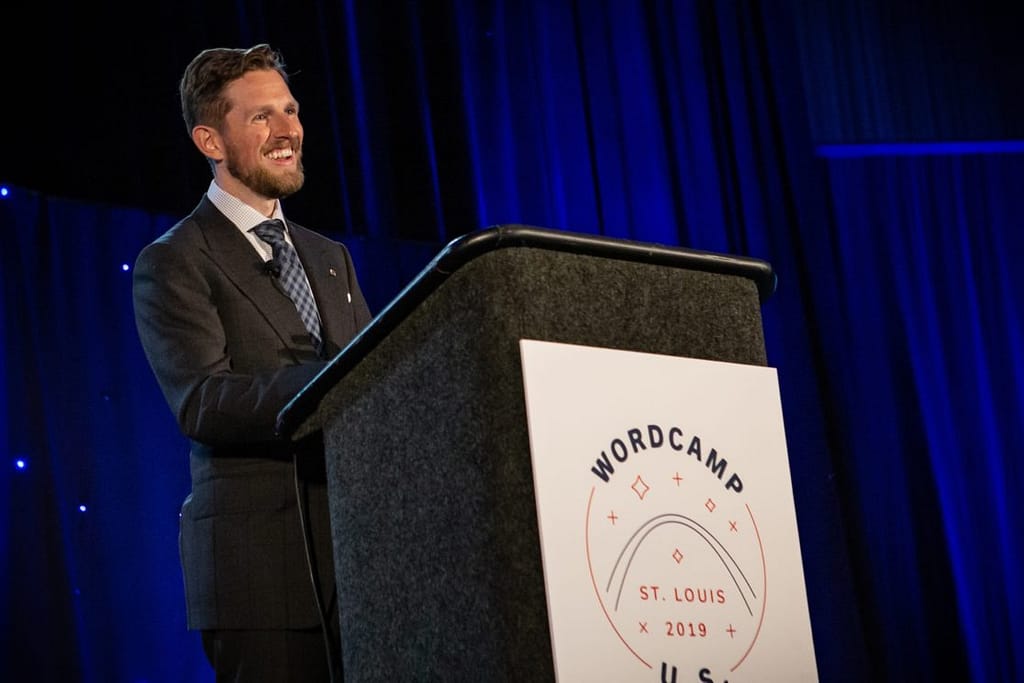
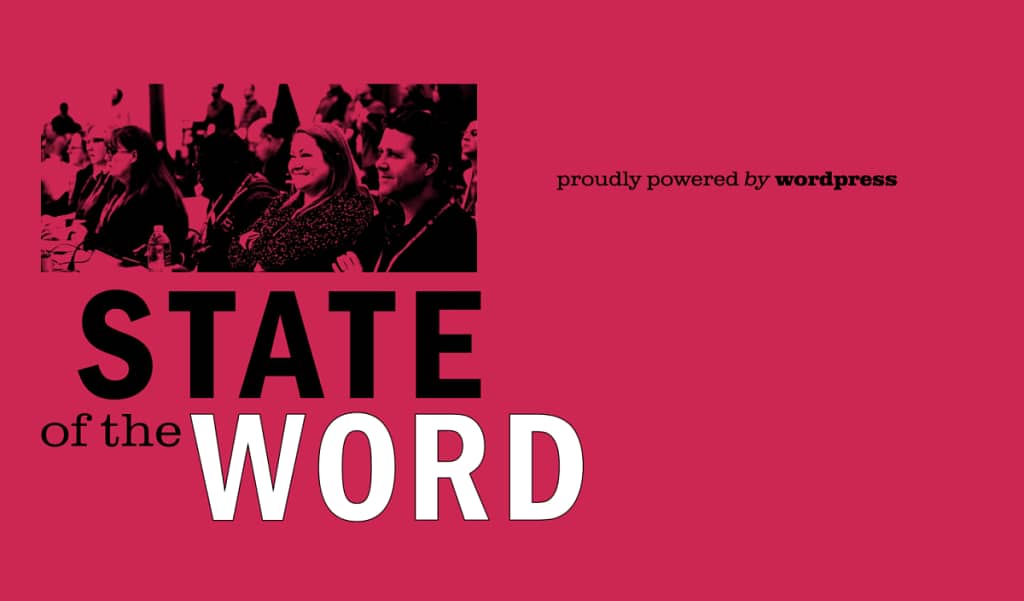
5.0
The release of WordPress 5.0 saw the introduction of the The Gutenberg Editor into Core.
In the years leading up to this, the community watched the Gutenberg project progress in the form of a plugin. Many prominent WordPress voices stated their concerns about the upcoming proposed merge.
In his article “Is Gutenberg the End or a New Beginning for WordPress?” Iain Poulson of Delicious Brains advocated for the Gutenberg project to stay as a plugin for longer before considering it for Core. Plugin developer Jeff Starr in his article “Thoughts on Gutenberg” was in agreement.
Chris Lema felt the editor missed the mark on the real problem WordPress should have been trying to solve for users, and while seemingly cautiously optimistic he had a major concern for the cognitive dissonance people would certainly experience editing content in this way with blocks.
Many were critical of the Gutenberg software itself and saw the inclusion into core as premature. Block options were inconsistent, a lack of any global colour or typography configurations, and a sense of indecision about where a theme’s role ends and a content editor WYSIWYG tool begins. It wasn’t that the development team involved weren’t doing good work, but it seemed that the model and processes of development of the software that worked so well for a simple yet powerful CMS, wasn’t translating to that of a complete website design tool for end users.
Scope Creep?
For me, a solid layout system at the core of any WYSIWYG tool is the absolute foundation. The simple concept of sections or rows, and columns is essential, and if this is done well then it gives a tool like Gutenberg endless scope to build upon.
The inclusion of such a system was discussed pre-launch in the project’s GitHub issue #219. The idea proposed for such a layout system received positive support from commenters. But the idea was pushed back, and declared not in “scope” for the project at this time. Commenters responded with concern that if this wasn’t feasible for v1, then launch should be delayed. Some warned that if such a fundamental feature was absent, then 3rd parties would immediately look to solve this problem for end users, meaning down the line as core caught up, there would be confusion for end users that had adopted early. V1 launched, and a solid layout system was not included. The issue was closed.
In retrospect, the most poignant prediction for me personally was from Morten Rand-Hendriksen in his article “Gutenberg and the Future of WordPress: Conditions for Success”. Hendriksen was of the opinion that if Gutenberg was to go into core, then the impact would be so great that there should be an official fork of the core software created and maintained. Rand-Hendriksen claimed if this were not done, the community would fracture.
Immediately following the launch something never seen in WordPress release history happened – a core feature of a major WordPress release was review-bombed, and it’s still happening now, daily. The Gutenberg plugin currently sits with a 2 out of 5 average review on WordPress.org from a pool of around 3500 opinions and from here, the predicted trouble brewing had inevitably come out in the wash. For the developers on the project, this must have been incredibly painful to see.
It was the beginning of a major fracture. On one side, people were being hurt or displaced by the actions of the strategy. And on the other side, people were being hurt by the words of those who needed to find a mechanism to protest.
Gutenberg Matures
Fast forward to late 2021. Development progress has been slow but notable for the block editor as a product, and the Gutenberg block editor has gained many fans as it’s feature set has vastly expanded and continues to improve in each iteration.
Block collection packs have been released to partially bridge the design capability gaps for professionals and end users building out sites. As it stands at this moment, all things being equal in feature parity with your average page builder, the block editor delivers a very performant website, the output code is relatively clean, and new third party blocks are being released on a regular basis. That said, there isn’t feature parity with Gutenberg and the leading page builders so the comparison is problematic at best.
An infectiously optimistic Jamie Marsland of plugin shop PootlePress Tweeted comparing the Gutenberg Block Editor to the invention of the Electric guitar, and mused whether Gutenberg would have a similar profound impact on the web. One commenter in particular disagreed quite strongly and presented an alternative metaphor (hey, just a joke between friends).
2021 has seen a phenomenal and unprecedented investment into WordPress through major acquisitions, buy-outs and mergers – fueled by the change, and new opportunity for businesses to get on the bandwagon.
Chris Lema has turned 180 degrees and has now fully embraced blocks. Lema also seems to see the commercial future of blocks and had a central role in the acquisition of Kadence theme and Kadence Blocks by Liquid Web.
So why the long face?
So why am I feeling so displaced by all of this change? The fragmentation Morten Rand-Hendriksen predicted is real. And it’s growing inside the community. I don’t have confidence in the software to continue to provide a base from which we can all thrive.
In fact, I’m questioning where my place is in the core of the community, if there is a place for me and those that feel as I do, at all. For the sake of my own wellbeing, I’ve had to narrow my own scope of what WordPress means to me, to be more about software, than about community. As a persistent voice in the community and evangelist for WordPress, I’ve found myself these days more of a marginalised buzzkill.
I don’t have confidence that the blocks concept will work from a user experience perspective for the scope it now aims for, and I believe the builder aspect itself is not fit for that purpose. But this isn’t a problem right? I can just mind my own business, and get on doing things the way I like because WordPress has always been about embracing choice.
Why then do I feel that with each passing second the pressure building to “embrace” blocks intensifies?
A Stay of Execution for the Laggards
An article published on The WP Tavern by Justin Tadlock titled “WordPress Classic Editor Support Extended for at Least Another Year” documented the decision by WordPress Executive Director Josepha Haden Chomposy to extend support for the Classic Editor for a longer period of time, a plugin that disables the Gutenberg block editor. The article quoted Core committer Jonathan Desrosiers saying:
“There’s a theory called the diffusion of innovations that looks to explain how, why, and at what rate new technology spreads. It separates adopters into several groups based on when they are willing to take the jump: innovators, early adopters, early majority, late majority, and laggards.“
The statement summarised perfectly an often stated opinion in the hype around Gutenberg that we must all get on board and embrace the block editor, or we’ll fall behind, or become irrelevant.
I build websites for my own projects and for clients. I’m a fan of the Page Builder as a solution – specifically in my case it’s Beaver Builder – the page builder known for its stability, ease of use, and for being developer friendly to extend. And for me, an amazing tool for design.
But a commonly echoed part of the new WordPress narrative defines my place in the community by my level of adoption of Gutenberg blocks. What this means in my case, is that I am perhaps at best just a late adopter – I haven’t yet embraced blocks yet, but inevitably I surely must, in the end, shouldn’t I? And, if I continue to fail to migrate my workflow to blocks then perhaps I’m best classified as a laggard – because apparently, the page builder is dead as is often claimed in discussions online – or at least, it’s yesterday’s news, apparently.
But the truth is, for people like me the deal breaker at the beginning of the project in omitting a legitimate layout system has rendered the Gutenberg editor inappropriate for our needs. We’re not laggards, we just don’t see this project as an innovation for design, in fact many of us see Gutenberg as a missed opportunity.
A Century of Response
The WP Tavern’s article prompted over 100 blog post comments. Plugin and theme developers, end users, and designers posted comments of protest and dissatisfaction to the handling of the roll out. In response those in support of the Gutenberg project were often strongly in disagreement. There was a clear divide in opinion, and little room for middle ground. The sense picked up by many was denial of a problem existing. The fracture was widening in plain sight on one blog post alone.
If it’s on TV, it must be true
A promotional video advertisement for the Gutenberg editor comparing blocks to page builders was released by Automattic. According to the video page builders could be slow and cumbersome, while Gutenberg was fast. And page builders could completely destroy your site, while Gutenberg was stable. Discussion on social media questioned why such a video even needed to exist, and saw its release as a move motivated by panic around adoption of Gutenberg in the face of user choice – rightly, or wrongly.
Clearly though, I’m not alone in my disillusionment.
John James Jacobi poetically Tweeted his feelings about the strategic handling of the project:
It sucks, big time.
It’s not fun.
It’s not better, or easier, or more accessible.
It’s a hostile takeover via friendly fire.
And I’m really, really depressed about it.
Jacobi was retweeting a post from Chris Weigman:
The deeper I get with modern WP dev the more I understand why newer devs don’t like to work on it. This is not the same project as it was in the past. The learning curve is now extremely high regardless of past experience.
Matt Cromwell Tweeted that he felt the concern should be more about the barrier to entry:
The biggest hurdle I see to getting into the WP “market” is not the big Corps, it’s the learning curve to develop on WP. It was previously far easier, it’s more challenging now and requires more skilled development — that is pushing investment as much as anything.
As Cromwell notes, the differing skills now needed to contribute in WordPress have increased significantly, and this is driving huge investment. Every week of 2021, sometimes even daily comes the announcement of a major plugin, theme or brand acquisition within the WordPress space. There is a change of the guard from community ownership, to that of corporate. A shift of wealth and power from the individuals, to the larger stakeholders.
This isn’t the ecosystem that I joined where the sharing and abundance mindset was the first and foremost driver, the ecosystem now appears to be much about the exchange of dollars for consolidation.
Yet, the narrative simply continues that everyone will eventually get on board with Mullenweg’s vision, everyone will embrace blocks – and what’s more, blocks will do everything and replace everything.

Fear is a Great Motivator
From a business perspective we’ve witnessed many companies and individuals that have a stake in the success of Gutenberg push this narrative hard. There is, of course, a lot of money on the line.
In a recent talk at The Page Builder Summit one speaker, previously employed by Automattic in the acquisitions team but now co-founder of a prominent WordPress brand, presented a talk called “RIP Page Builders”. The CEO, whose company sells premium Gutenberg block based add-ons, took to scare tactics taking the viewers of the talk to Elementor’s Terms & Conditions page during the talk to warn us that if we stopped paying for Elementor Pro then over time things on the site might break. Furthermore, he warned that your “reputation” would be potentially damaged as well.
Many attendees pushed back at this point questioning the difference between a user’s risk with Elementor, vs the like for like risk using the vendor’s own plugins or any other 3rd party addon for that matter. Again misinformation about non-block based 3rd party plugins being a risky business that break your site or ruin your reputation climbed back to the forefront again – just like in Automattic’s promotional video. But in this case, the claim was that a 3rd party on top of Gutenberg was somehow different.
The loudest kind of silence
On the positive side, core team members consistently engage with the wider community responding to comments on the plugin repository review system for Gutenberg asking for specific feedback on what can be improved. But the reviews are largely responding to critique at the fundamental level of the project, and the requests for feedback are seeming to miss or swerve this repeating sentiment. Typically these requests for feedback by the outreaching core team members are met with the loudest type of silence.
But like a raft down the rapids, even the core team with best intentions to act upon feedback can really only steer slightly to the left or to the right to avoid the raft hitting a rock losing yet more passengers. Paddling back up the river to choose a different route, at this point? Out of the question.
But is it really community engagement, or is it just change management?
Many folks reading this may have had the unfortunate experience of being made redundant from their job and found themselves in a period of “consultation” aka a stay of execution. A way to keep the voices of opposition in the meeting rooms and out of the corridors where the echo is more prominent. To be the recipient of a change management strategy can be very depressing. You want to speak, but you know deep down, it’s a waste of your breath.
The narrative many of us feel is being pushed needs an urgent rethink. Because, it’s dividing us further each day. And it’s pushing people away.
No more Learn Javascript Deeply – for those stuck in the shallows we can reassure them to climb out the pool and walk along the side instead. No more RIP page builders, or PHP is dead. No more embrace Gutenberg or fall behind, and please, I’m not a laggard – at least not yet.
Promote the benefits of blocks for where they work, but also remember what came before, what has driven WordPress forward, and what continues to thrive.
Last month I left my role as co-host of the This Week in WordPress podcast show. A few hours prior to writing these final paragraphs, I resigned my position as Managing Editor of The WP Minute. I have decided to take a big step back from the inside baseball talk of the WordPress project
Paul Lacey
So Long, and Thanks for All the Fish
I’ve been fortunate to be a voice in the WordPress community for some time now, and what a fulfilling journey it’s been. I’ve been a guest on countless podcast shows, co-hosted over 150 live streams shows, delivered workshops, meetup talks, joined editorial teams and even briefly joined a major YouTube Channel.
I’ve spoken on the stage a number of times, about everything from UX to mental health. And I’ve made hundreds of friends – some of them I truly believe will be friends for life. I’ve really had an amazing journey thanks to what the WordPress community infrastructure provided. I’m grateful for everything, from everyone.
In finally getting my thoughts down on paper, and furthermore talking privately with a few individuals that read my early drafts, it started to dawn on me – I’m burned out with WordPress. The division, the forced adoption, the acquisitions, the narratives, the uncertainty, the politics. The change.
Last month I left my role as co-host of the This Week in WordPress podcast show. A few hours prior to writing these final paragraphs, I resigned my position as Managing Editor of The WP Minute. I have decided to take a big step back from the inside baseball talk of the WordPress project and from being a prominent voice, curator and evangelist within the ecosystem.
I love the software and what I can do with it, and I love my friends in the community and the memories we have made together.
I want to thank all the people who have been a positive part of my journey over the last decade. We’ll still be friends, and I’m still in the digital community, still care deeply about sharing knowledge both about tech, mental wellbeing and telling stories – and I’ll still be doing that. So we’ll regularly cross paths I’m sure. And thank you to all the contributors to the WordPress project, whether the core software, or the 3rd parties extending it, and of course the co-founders Mike Little and Matt Mullenweg.
I’m excited to explore and share new things in digital solutions for end users, and of course WordPress is all part of that, but for me now, WordPress will be the tool, or one of many tools.
WordPress should not be about forcing the adoption of change, it should be about celebrating choice. That’s a philosophy that glues a community together.
Otherwise, it’s no longer community, it’s just software.
Join The Newsletter
Get your favorite 5 minutes of WordPress news for busy professionals every week — 100% Free! Join the WP Minute Newsletter below 👇
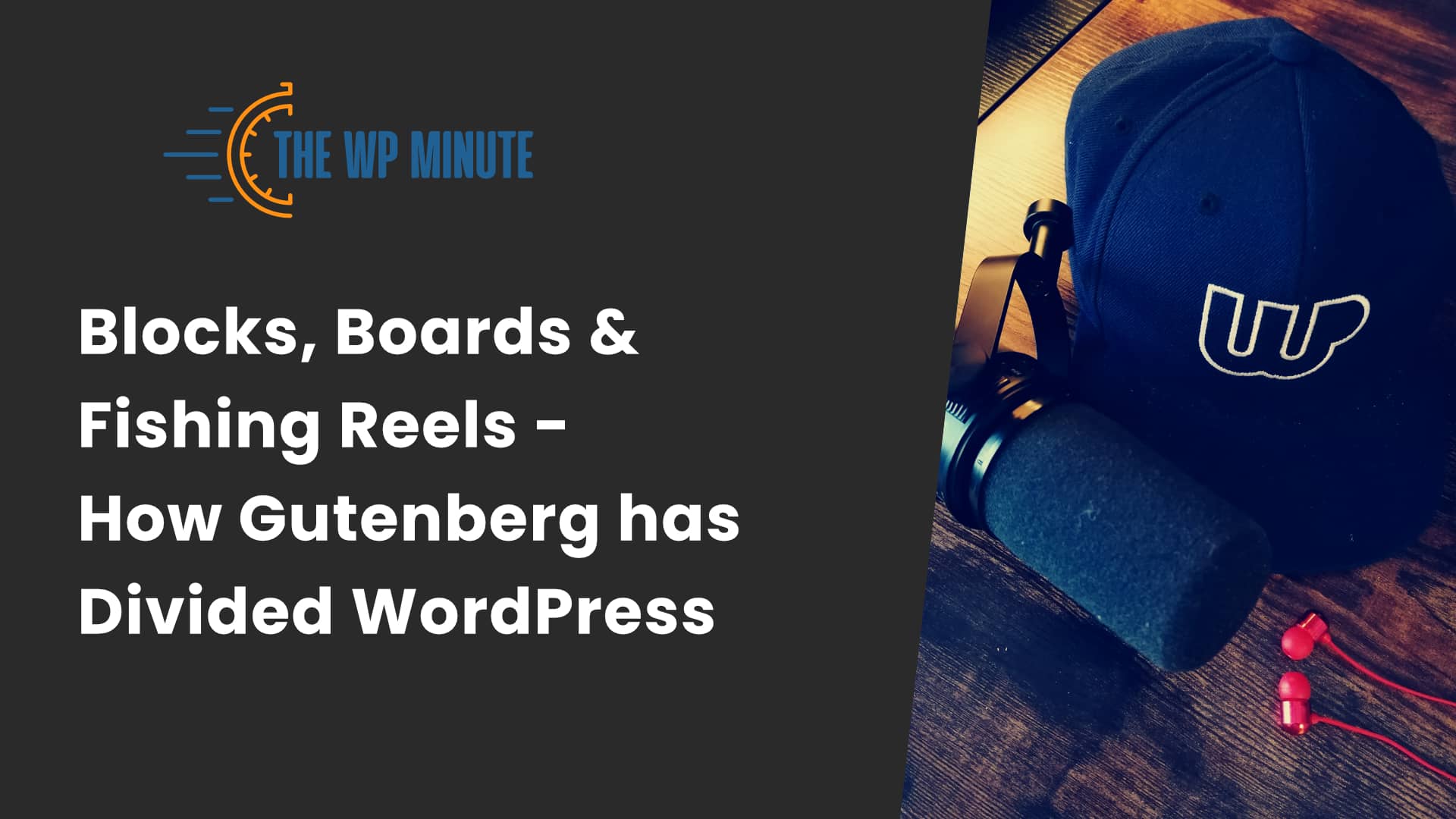

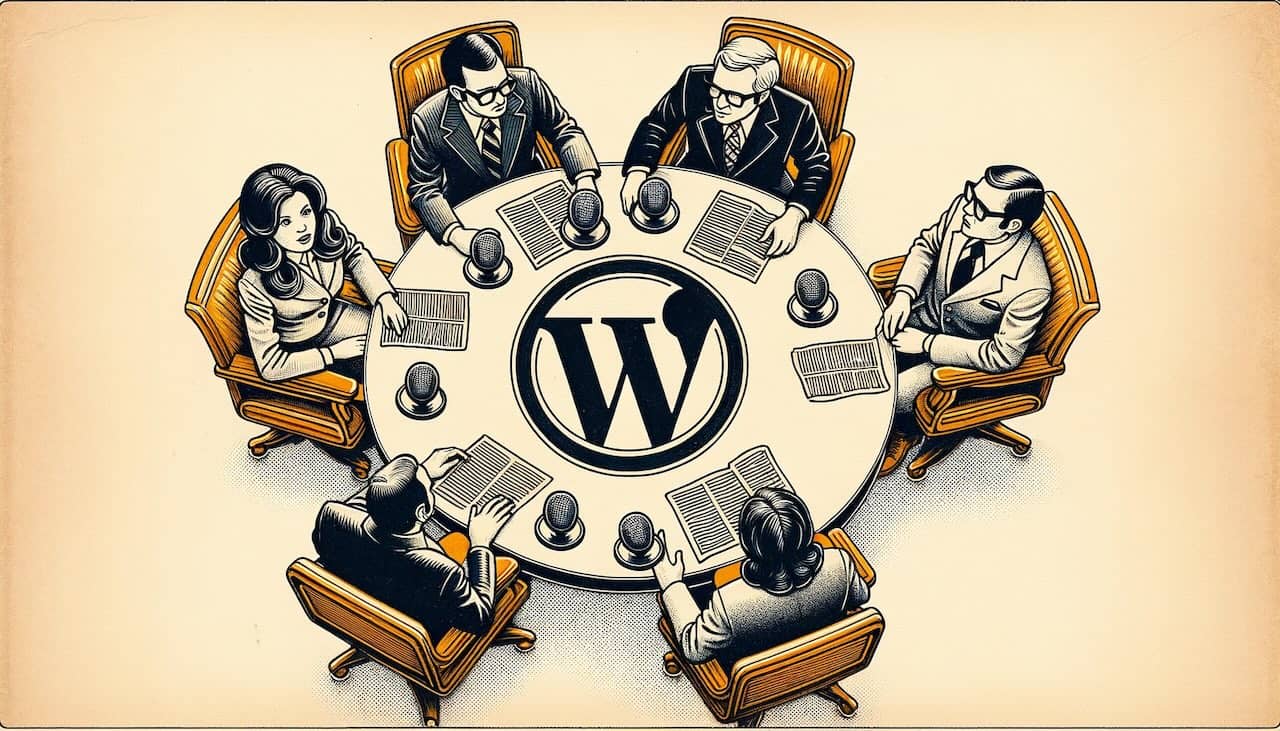



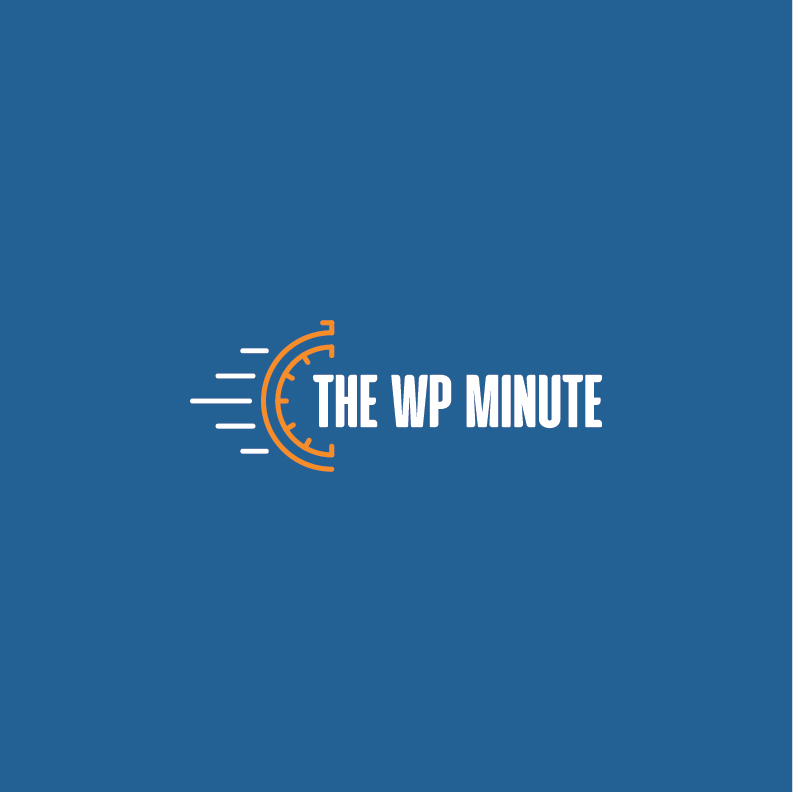
There was a good reason to merge Gutenberg with the core at that time, with all the bugs and missing features. Money. Gutenberg is the reason Automattic got $600 million a few months after it was merged with the core, so it could compete with website builders and page builder plugins.
This is why ClassicPress exists and is growing. The best of WordPress without the worst of WordPress.
Check out ClassicPress.
Leaving aside all the WP drama the very important thing that a fork of WP 4.9 do exists. And it is slowly gaining momentum.
I could see GP being helpful for some of my users, however the big issue I have for it is lack of control. I build highly custom sites for my clients often with WP as the backend. I need to have full control of the HTML, CSS & JS that are used to build the page. This often means that I can’t just use the default blocks and have to create new ones to better equip my clients and their custom designs and layouts.
I would love to have an easier way to turn blocks etc on/off in a theme, and to be able to change the code for existing ones. If GB used a better MVC approach then developers could override parts of the blocks to better fit their needs.
Additionally making new ones should be made a thousand times easier, setup of new blocks is over complicated.
So the majority of the time it have to disable GB and use some custom function in conjunction with Advanced Custom Fields Pro to get the control I need as a developer and the ease of use for my clients.
I agree with making new blocks a thousand times easier. That’s why I created Wicked Block Builder. 😉
I have a 3,000 page Western History site, all classic WP. Now over ten years old. Gutenberg has never called me. The learning curve is too steep and I’m 80 years old, among other issues. I think you are correct about the split. I have no interest in trying to change over.
Community is already divided, and as you said it, once it is broken you can’t fix it. Also, I agree, Gutenberg is something Matt pushed for because of WordPress.com, not org. Obviously, Wix, SquareSpace and others are far away in front of .com, and he needed some changes to be able to get them. But, not sure this is the solution that will help.
On the other side, Gutenberg is producing enemies everywhere. Now, 3rd party builders are enemies. OK, but in reality Elementor and Beaver, are far away from where Gutenberg is at the moment. And they are faster with updates and improvements to Gutenberg, so it is not like Gutenberg is closing down on them, it is opposite.
To me it looks like that everything will fall apart. Some part of the community will obviously stay with Automattic/Gutenberg, but part will go with Elementor who will probably have their own fork at one moment and go for cloud solution. There are tones of dev teams already going with them, and not even thinking about Gutenberg. Beaver will go similar, and I can bet that a lot of theme producers will go in similar direction, as they have no use in going with Gutenberg. Why would for example theme producers from Envato like Avada, Bridge, Flatsome, 7 embrace Gutenberg or even think about it? Or Divi? So they will probably go for similar solution, for some fork as no point of updating software and keeping it with latest version that doesn’t bring anything to your product anymore. So more dividing, and more people that will switch WP for one of forks. At the end, maybe Automattic will earn more money for investors (and that is the aim I guess), but product and community won’t be like it was.